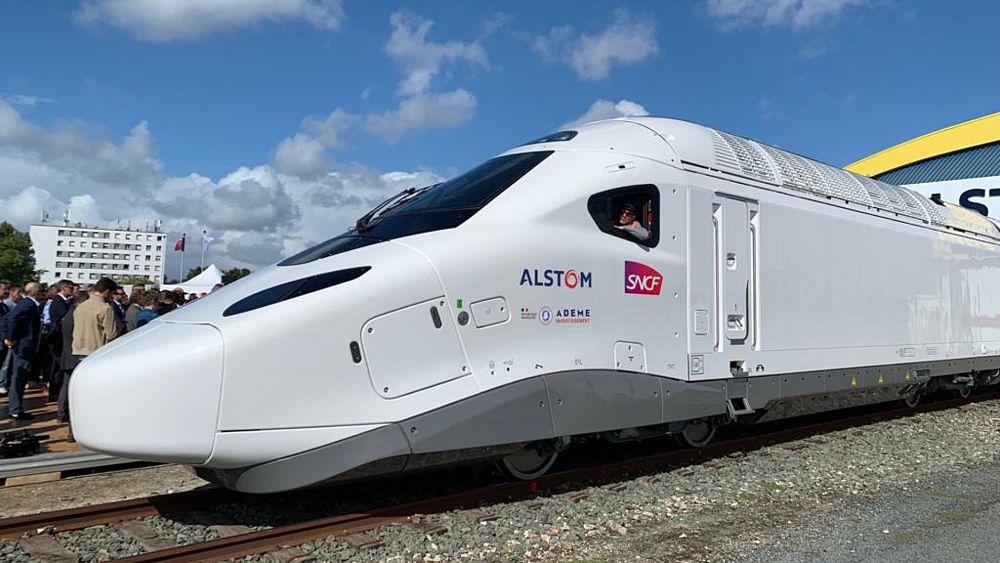SNCF's new high speed, low carbon train is preparing for its 2024 launch far from the passengers it will serve.
After unveiling the ‘TGV of the future’ late last year, French train manufacturer Alstom has begun testing the TGV M - also known as the Avelia Horizon - on a circuit in the Czech Republic.
The double-decker train has 740 seats, up from TGV’s current maximum of 634 - a 20 per cent increase in capacity.
It is also greener than its predecessors, slashing CO2 emissions by 37 per cent and made of 97 per cent recyclable components.
Its modular design means the number of cars, as well as their interior layouts, can be adjusted easily according to need.
What’s it like on board the TGV M train?
The new TGV M trains are designed for a comfortable ride. Bigger windows offer panoramic views, the lighting adapts to the intensity of the natural light in the train, and 5G wifi will be available onboard.
They also better accommodate passengers with reduced mobility, including wheelchair users and the visually impaired. They will be the first TGVs to offer fully independent access to the train - via a pivoting lifting platform.
Advanced sensors that send real-time data will improve maintenance procedures and increase the availability of the services.
A lengthened nose makes the train more aerodynamic, facilitating speeds of up to 320 km/h.
When will the new TGV M trains hit the tracks?
TGV is currently testing the new train for comfort and safety on a circuit in Velim, Czech Republic. This phase will last six months, after which further tests will assess the train’s performance in various simulated weather conditions.
SNCF has ordered 115 TGV M trains worth €3.3 billion, with 100 expected to serve on domestic railways and 15 in international transport.
Though tested in the Czech Republic, the trains will be manufactured in France.
They are set to debut on France’s national network from 2024. The trains will run between Paris, Lyon and Marseille and will be used for both the INOUI and OUIGO TGV services.


